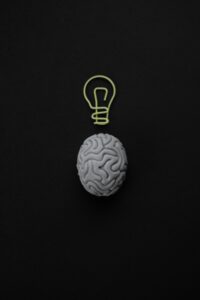What Causes Depression?
Understanding the causes and triggers of depression is crucial if you are struggling. While genetics, trauma, life events, and neurobiological factors all play a role, it’s important to recognize that depression is a complex interplay of various influences.

So maybe you have been struggling with feeling sad or numb for some time, and began wondering “am I depressed?” and found your way here. Welcome, and hope the information on this page will be helpful for you to understand yourself more and get help that you might need from mental health professional. This page does not serve as medical advise.
What is depression?
Depression can manifest in a variety of ways, and people experience symptoms differently in severity and in various combinations. Common symptoms of depression include:
Persistent Sadness: Feeling sad, empty, or down most of the day, nearly every day.
Loss of Interest: Losing interest or pleasure in activities that were once enjoyable, including hobbies, social interactions, or work.
Fatigue and Low Energy: Feeling constantly tired, even after a full night’s sleep, and experiencing a lack of energy.
Changes in Sleep Patterns: Insomnia or hypersomnia (oversleeping) are common, and individuals with depression often struggle with maintaining a regular sleep schedule.
Unanticipated changes in Appetite or Weight: Significant changes in appetite, leading to weight loss or weight gain. This can result in overeating or a loss of interest in food.
Feelings of Guilt or Worthlessness: Persistent feelings of guilt, self-criticism, or worthlessness, even when there is no apparent reason.
Difficulty Concentrating: Trouble concentrating, making decisions, or remembering things, often referred to as “brain fog.”
Irritability: Becoming easily irritable, frustrated, or agitated over small matters.
Physical Symptoms: Experiencing unexplained physical symptoms such as headaches, stomachaches, or other aches and pains.
Isolation: Withdrawing from friends and family, avoiding social activities, and preferring to be alone.
Thoughts of Death or Suicide: Persistent thoughts of death, dying, or suicide, or making suicide plans or attempts. If you or someone you know is experiencing this symptom, seek immediate help.
Loss of Libido: A significant decrease in sexual desire or interest.
It is also important to know that depression can be accompanied by anxiety or other mental health conditions.
How do genetics and Family History play a role in depression?
Genetics and family history can play a part in the development of depression in your lifetime. If your family has a history of depression, you may be at a higher risk and increased susceptibility to depression in your lifetime. Studies have also shown that if you have a close family member with depressive-proneness, you are more likely to develop it too as compared to folks who have no family history of depression.
Further, epigenetics can also impact how genes related to mood regulation are expressed, potentially increasing the risk of depression. This can be manipulated by your upbringing, relationships you have, and other life experiences that we’ll discuss more in the next section.
It’s important to note that having a family history of depression does not mean you are destined to develop the condition. Many people with a family history do not experience depression, and many individuals without a family history do. Let’s see what other factors may play a role…
How about trauma experiences and adverse life events?
Traumatic events throughout your lifetime can play a role in your ability to regulate your emotions as well. Trauma events can include physical or sexual abuse, emotional manipulation, psychological abuse, social conditioning, negative views from your surroundings, developmental neglect, accidents, witnessing violence, etc, and can have a profound impact on susceptibility to developing depression if trauma is not processed in treatment. Trauma can disrupt your sense of safety, trust in the world, and ability for emotional regulation, leading to symptoms of depression and sometimes PTSD.
Further, adverse experiences during childhood, including abuse, neglect, or growing up in a dysfunctional family, can increase the risk of developing depression later in life. Research has shown that childhood trauma can affect a child’s development of healthy coping skills, self-esteem, and interpersonal relationships, making individuals more vulnerable to depression in adulthood. Other significant stressors you may be thinking about that are also contributing factor are loss of caregiver, divorce, and death can trigger prolonged grief and if unmanaged, evolve into clinical depression and other emotional complications.
And stressors?
Chronic stressors such as bullying, financial difficulties, racial discrimination, job loss, chronic illness, or familial and relationship problems can contribute to the development of depression.
Chronic stress can lead to changes in brain chemistry, disrupt your body’s ability to rest and sleep patterns, and ultimately wear down your ability to cope with challenging emotions effectively.

Neurobiological factors and hormones too?
Other contributing factors, on top of the all above mentioned, significantly affect your development of depression.
Our bodies create neurotransmitters such as serotonin, dopamine, and norepinephrine that regulate your mood, and abnormal levels of these neurotransmitters are associated with the development of depressive symptoms.
Our brain’s structures and parts of the brain that function in mood regulation and emotional processing (amygdala and hippocampus) also play a role. Your past physiological trauma or traumatic experiences may have a propensity to directly cause structural changes to these parts of your brain, and leading to challenges for emotional regulation skills and depressive symptoms to develop.
On top of that, your endocrine system which regulates hormones in your body also influences mood. Remember how challenging it was to control your feelings when you went through puberty, or have gone through pregnancy, or a post-partum period?
While these neurobiological and hormonal factors can contribute to your proneness to depression, they often interact with other factors as laid out above and more that could not be included in this post.
In Conclusion…
If you are experiencing depression, your body and brain are doing its best to cope with everything that has happened to you. Depression is a complex condition that results from various factors, and maybe some really resonated with you. There is help!
Treatment for depression can take time, and what works best for someone else may very much differ from what works for you. By working with a qualified psychotherapist (such as me), you will set goals and collaborate with me to set an individualized treatment plan, and as needed, we will communicate openly with your healthcare provider about your treatment progress and perhaps consideration for medication to aid in treating your depression symptoms.
If you or someone you know is experiencing severe depression, thoughts of self-harm, or suicidal ideation, seek immediate help from a mental health crisis line 9-8-8, a hospital emergency room, or a trusted healthcare professional.
– Angel